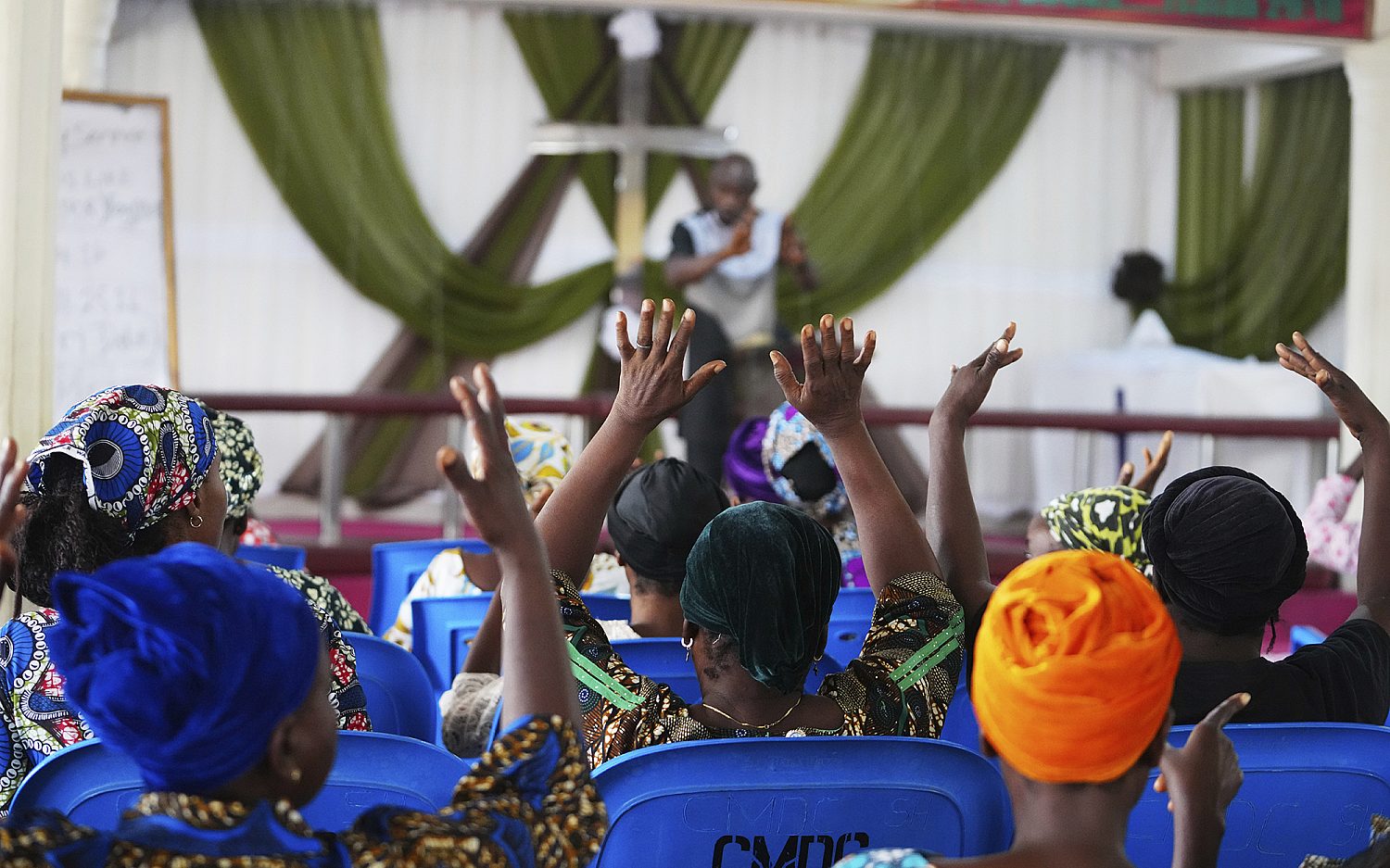Friday prayers
At least one Muslim cleric has come to the defense of Iraqi Christians facing violence in Mosul
It's the Muslim day of prayer, and not surprisingly the clerics in Baghdad led prayer services with political rhetoric. But at least one cleric has come to the defense of Christians in the northern city of Mosul.
Shiite cleric Sadralddin al-Qubanji told followers Friday that the recent killings of Christians in Mosul are a "malicious scheme against Christians and all Iraqis," and he said he disapproved of the attacks in "letter and spirit."
Contacts in Mosul have told WORLD that anywhere from 25 to 40 Christians have been killed at gunpoint in the city since Oct. 4, and that approximately 3,750 Iraqi Christians have fled the city. "We left everything behind us. We took only our souls," said Nima Noail, 50, a civil servant who left his home in Mosul and is now living in a church, according to Barnabas Fund. On Oct. 16 WORLD received a list of nine Christians confirmed dead in Mosul, including a 15-year-old boy gunned down in the street while playing with Muslim friends on Oct. 4, and a man in a wheelchair killed while working in the shop where he sold spare parts on Oct. 6.
Church leaders also say that Christians have received threatening letters warning them to leave the city. And one church officer told WORLD that at least five homes belonging to Christians-including three on one street-were bombed. One family who fled to nearby Telkaif told the church officer that 15 masked young men stormed the family's home looking "very well-trained. They collected the mobile phones first, then they asked if there were men in the house." The gunmen were told that the father was not there, and they put a gun to the head of an 8-year-old boy. He was not shot, but the family was ordered to leave the house without taking any belongings. After they left, the gunmen brought in explosives and bombed the house. Neighbors said they called the police after the terrorists left, but they did not arrive before the house had been reduced to rubble.
Clerics in Baghdad are not the first Muslims to come out in belated support of targeted Christians. Key government leaders in Nineveh province, where Mosul is the capital, are also alarmed by the killings, which have taken place sporadically since 2004. Hisham al-Hamadani, head of the provincial council and a Sunni Muslim, said the government has taken steps to protect churches and majority Christian neighborhoods in the city, but remnant al-Qaeda and other Sunni extremists have established a stronghold there. Hamadani's own house was destroyed in a bomb attack.
"The Christians were subjected to abduction attempts and paid ransom, but now they are subjected to a killing campaign," said Duraid Kashmoula, the governor of Nineveh, adding he believed al-Qaeda elements are to blame and calling for a renewed drive to root them out.
But Christians in Mosul now find themselves part of a squeeze over the political future of Iraq. The squeeze pits so-called secular Muslims, many of whom are involved in the political process, against seriously religious ones who oppose it. The country's third largest city is not only the historic center of Christianity but also a hotbed of Sunni extremism. Many of Saddam Hussein's former Baathist leaders came from Mosul, and Sunnis in the city heavily boycotted the 2005 elections-giving the majority of the local council to Kurds and thus locking themselves out of the current political process.
Sunnis and some Shiite groups across Iraq are openly protesting a draft agreement completed Friday that will allow U.S. troops to remain in Iraq after the U.N. mandate expires Dec. 31. Both the Bush administration and Iraqi President Nouri al-Malaki (a Shiite) say the agreement is critical to ensuring Iraq's security until government forces are capable of taking charge of the fight against insurgents. On Friday many mosques in Baghdad were full of rhetoric against the agreement, and a bomb at a Shiite mosque in north Baghdad has killed at least three worshippers. Sunni cleric Abdul-Sattar Abdul-Jabar said the agreement is "more dangerous than the occupation," and Qubanji, the Shiite cleric, accused Maliki of drafting it "in secret."
All point to the divide Iraq's political leaders face in bringing their religious counterparts into the process. And fueling anger against groups, particularly those seen, like many Christians are, as having ties to the West.
Additional U.S. Special Forces have this week been dispatched to Mosul from Baghdad. In the last two days they have detained at least six al-Qaeda suspects, and on Oct. 5 killed five, including key al-Qaeda leader Abu Qaswarah, during a raid on a building in Mosul. Maliki has ordered blankets and food to the north to assist fleeing Christians. Private Christian organizations, including Barnabas Fund and an Iraq-based group named CAPNI, are also providing food and shelter to displaced families.
The Associated Press contributed to this report.
An actual newsletter worth subscribing to instead of just a collection of links. —Adam
Sign up to receive The Sift email newsletter each weekday morning for the latest headlines from WORLD’s breaking news team.





Please wait while we load the latest comments...
Comments
Please register, subscribe, or log in to comment on this article.